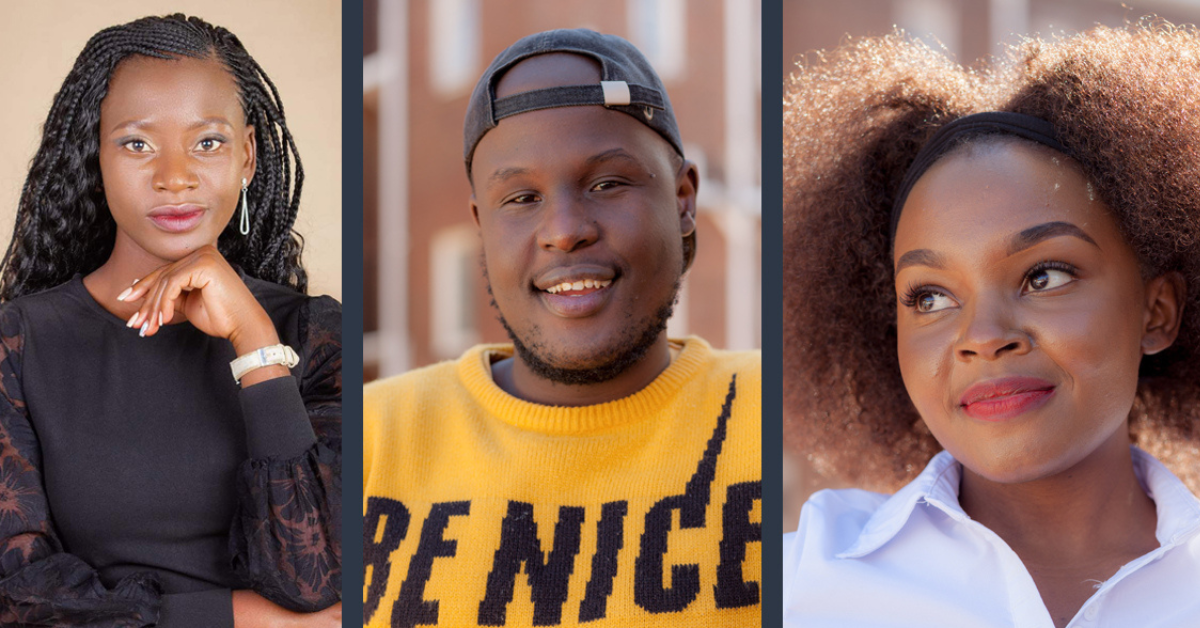Aubrey Weber, FHI 360
Michele Nolen, FHI 360
Sanele Ngulube, Pangaea Zimbabwe
Mercy Luwi Katoka, FHI 360
Amogelang Sasha Kekana, Wits RHI
This post was first published on the FHI 360 website.
To be effective, HIV prevention products must be used correctly and consistently. People with a higher likelihood of exposure to HIV must have access to the most up-to-date products — and use them — to reduce their chances of acquiring HIV.
While new HIV infections have declined steadily since the mid-2000s, adolescent girls and young women — particularly in eastern and southern Africa — remain highly susceptible to acquiring HIV. In 2022, they accounted for three-quarters of new HIV infections among all young people ages 15–24. That same group was more than three times as likely to acquire HIV than their male peers.
To help more adolescent girls and young women prevent HIV, FHI 360 is leading a project consortium, funded by PEPFAR through USAID, that is working to accelerate the availability and uptake of new HIV prevention methods, such as long-acting injectable cabotegravir and the dapivirine ring.
The project, called MOSAIC, has relied on a dynamic team of paid youth advocates since 2021. Known as the NextGen Squad, the team is composed of people under 30 from nine African countries.
The NextGen Squad helps shape and influence MOSAIC’s activities, such as those for research, policy and programming, and marketing. Ultimately, the group holds MOSAIC accountable as it aims to be responsive to young people’s needs and preferences, especially those of adolescent girls and young women.
Here, learn how three NextGen Squad members are contributing to the project.
SANELE NGULUBE, YOUTH ADVOCATE, PANGAEA ZIMBABWE

“The NextGen Squad has shown a different level of meaningful youth engagement. We have been involved in all the stages of a project cycle, from planning to implementation. And we have opportunities to take the lead on activities.
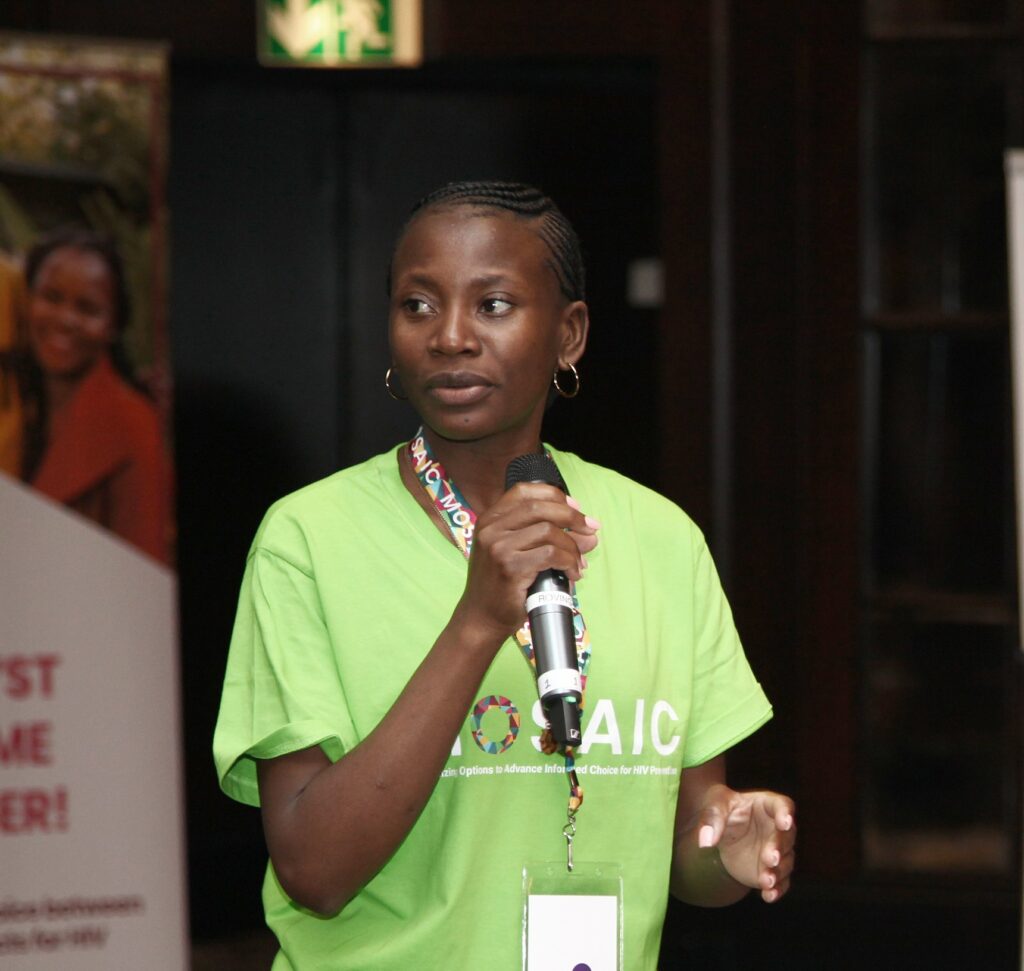
“I’ve learned so many skills as a NextGen Squad member. I facilitated a Global PrEP Learning Network webinar, which had over 200 attendees. I also participated in a panel discussion during the ICASA 2023 conference. I shared what young women feel about the dapivirine ring and what they actually want. I was able to amplify their voices at a high-level event.
“Fundamentally, engaging young people in HIV prevention efforts is the right thing to do. And we know the challenges our peers and communities face. So together with researchers, implementers and funders, we can find lasting solutions.
“Investing in young people is investing in the future.”
MERCY LUWI KATOKA, PROGRAM OFFICER & YOUTH REPRESENTATIVE, FHI 360, ZAMBIA

“As young people we can influence our peers significantly, thereby spreading awareness of prevention strategies more effectively through peer-led initiatives.
“We also bring fresh perspectives and innovative approaches to prevention and advocacy, and we know how to leverage platforms like social media to mobilize our peers and communities.
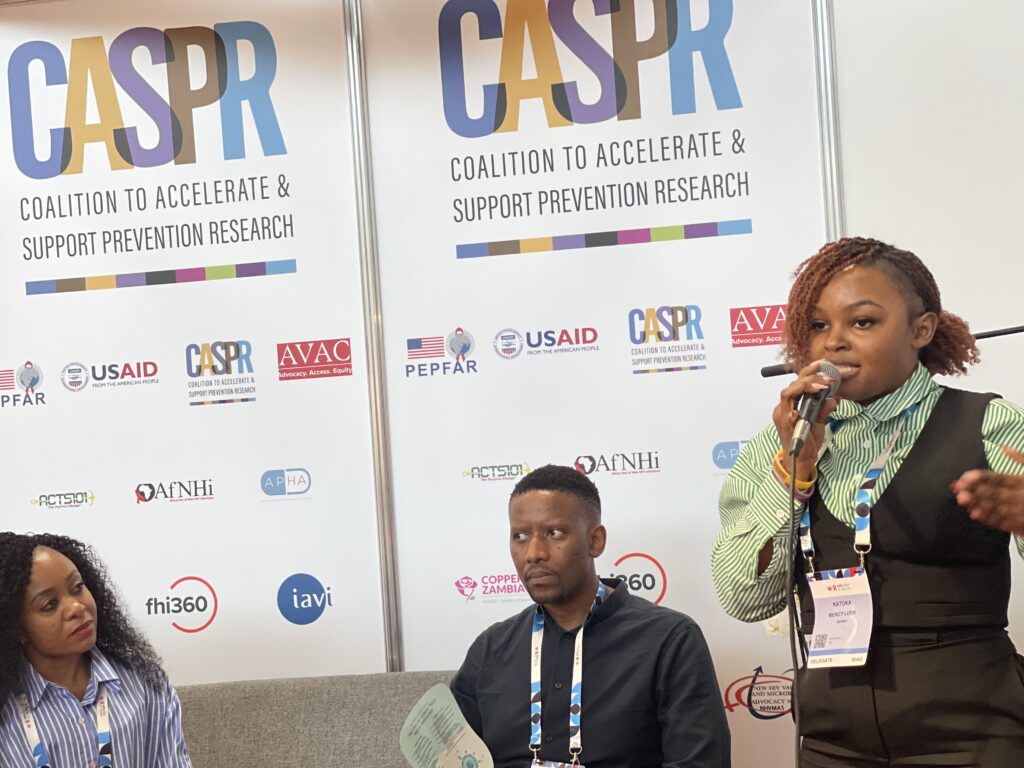
“MOSAIC has put in place an integrated and supportive framework that ensures that NextGen Squad members are not just participants — we are key drivers in the effort to prevent HIV. We are involved in so many activities to ensure that MOSAIC’s actions align with the needs and preferences of young people.
“I felt my opinion as a young person really mattered during the 2023 MOSAIC workplan development process and USAID’s Office of HIV and AIDS call to implementing partners. I had the opportunity to identify youth-specific activities and put them in a narrative description, and now I’m leading those activities in-country.”
AMOGELANG (SASHA) KEKANA, RESEARCH ASSISTANT & HIV PREVENTION AMBASSADOR MENTOR, WITS RHI, SOUTH AFRICA
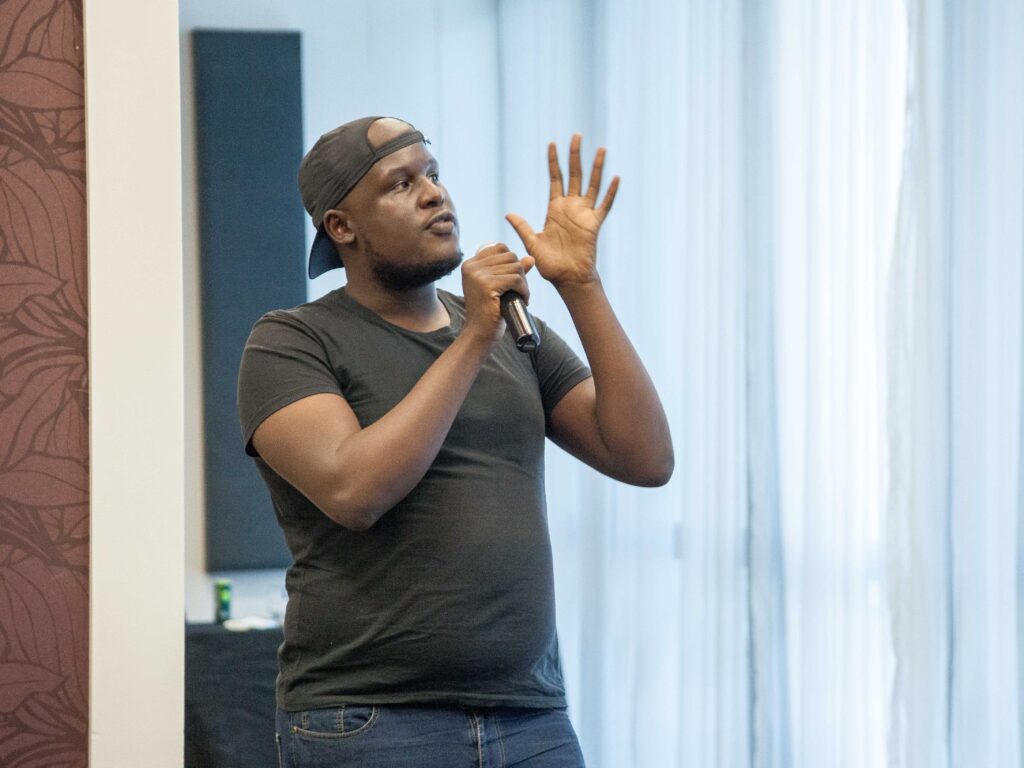
“Young people are very important to HIV prevention efforts because of our unique capacity for behavior change, influence within peer networks, openness to innovative approaches, and potential to reduce stigma.
“I attended a workshop with MOSAIC’s knowledge management team, and I was asked how CATALYST, MOSAIC’s flagship study, can meaningfully engage young people. I was the only young person in a room of project leaders and was given the opportunity to share my views, which made me feel valued and important.
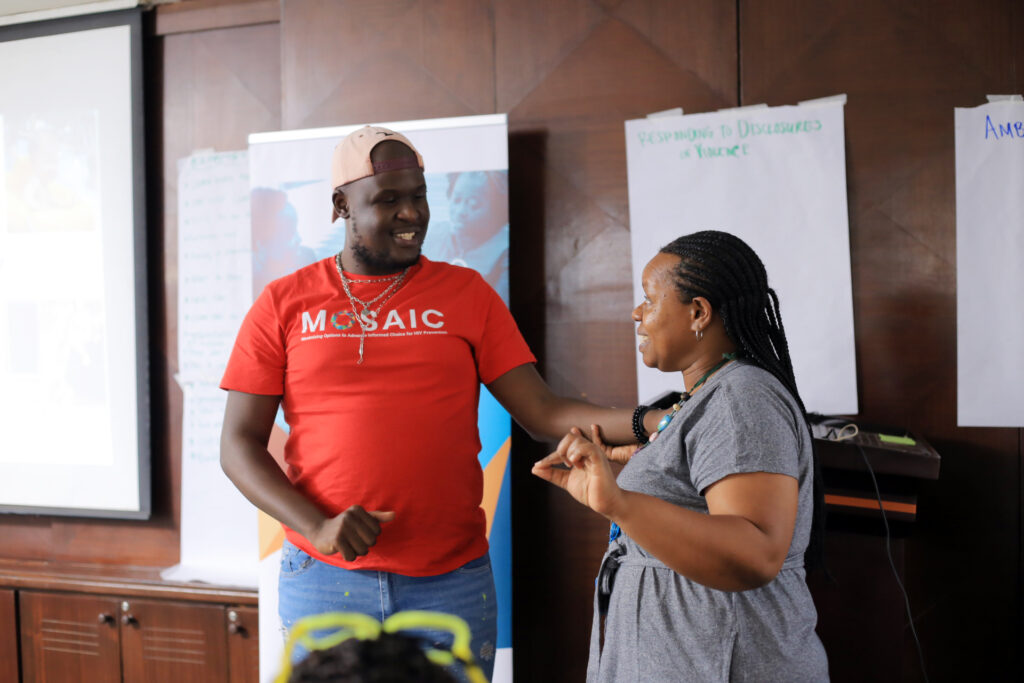
“During the workshop, I suggested making the language simple yet informative enough for young people to understand. I also suggested finding young people in spaces where they are comfortable, like social media, and keeping up with social media trends. I was excited to see my feedback incorporated in the study’s client-facing materials.
“I’ve learned a lot of skills being part of the NextGen Squad support team, which include but are not limited to leadership, public speaking, relationship building and communicating. I’m now leading a group of six other peer navigators. I draw inspiration from them to make me a better leader.”
Featured Images: David Penney/MOSAIC, Aubrey Weber/MOSAIC, Unitaid, Brian Ssewankambo/MOSAIC.


